Because of their available natural resources and geographical locations, there are some countries around the world that are almost completely dependent on one industry. For example, some countries are largely dependent on the oil industry. Agriculture and mining are other industries that drive a dominant percentage of gross domestic product (GDP) in certain parts of the world. These types of industries tend to drag the rest of a country’s economy, as every business rushes to be a supplier of the largest customer.
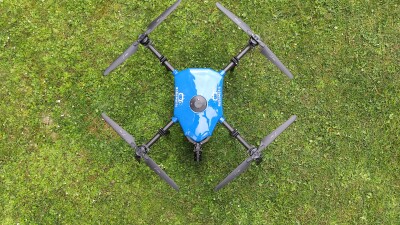 In Chile, the number one export product is copper. For the past 50 years, the country has been engaged in an effort to diversify from the mining industry by investing in agriculture and forestry. However, it has only managed to put a small dent in the dominance of copper exports.
In Chile, the number one export product is copper. For the past 50 years, the country has been engaged in an effort to diversify from the mining industry by investing in agriculture and forestry. However, it has only managed to put a small dent in the dominance of copper exports.
The unmanned aerial vehicle industry has the potential to not only help Chile diversify its economy but also improve operations in its dominant copper mining sector. Currently, Chile is one of the most active countries when it comes to using UAVs in mining applications. The technology now serves an industry that is fixated on safety and reducing the number of accidents and incidents in their gigantic open-pit copper mines.
One company in particular, Robomotic of Santiago, Chile has devoted an entire line of research and development to create unique products for the mining and public safety sectors. To learn more about UAVs in mining and their role in the overall Chilean economy, we reached out to Alberto Munizaga, founder and owner of Robomotic, for an interview about their products and their markets.
“It all started in 2016 when I noticed that off-the-shelf drones were very limited in terms of commercial and professional grade applications,” Munizaga said. “It was as if drones were intended to be toys, and we saw an opportunity to turn them into production machines with an immense potential to save money and lives.”
Robomotic is not all about aerial vehicles. They also design and manufacture ground robots that could be autonomous or remotely controlled for dangerous tasks, such as fire monitoring, active crime scenes, and mining operations.
“When we are contacted by a customer with a very specific need, we work together to determine the best vehicle to accommodate the details of the task,” Munizaga stated. 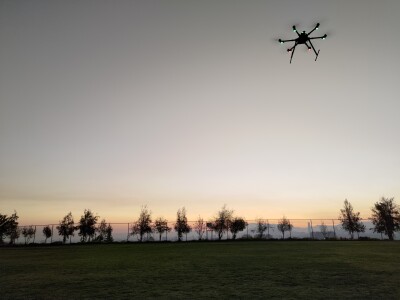 “Sometimes the solution involves a small, ground robot with a sensor that’s supplied by the customer and together we design the protocols that would be followed by the machine in the execution of the tasks. It’s a fascinating world in which we work with professionals who need a job done, and we can design and manufacture the robot to do it.”
“Sometimes the solution involves a small, ground robot with a sensor that’s supplied by the customer and together we design the protocols that would be followed by the machine in the execution of the tasks. It’s a fascinating world in which we work with professionals who need a job done, and we can design and manufacture the robot to do it.”
Chilean norms regulating the use of UAVs are very strict, especially in terms of airspace and restrictions on the use of UAVs over cities. Robomotic has developed incredible solutions, especially for delivery of packages, public safety, and mining, but the strict regulations over urban airspace have prevented their deployment.
“Our business model is mostly predicated on the one-on-one relationship with large private corporations and important public safety agencies, but unfortunately most, if not all, our projects are restricted to rural areas,” Munizaga said. “The growth of our company in particular and the robotic industry in general is inseparably linked to the regulations over urban areas. We will see an explosion of applications and benefits, once the regulating agency opens the door for flights beyond visual line of sight in urban settings and expand restrictions based on weight of the aircraft.”
When addressing the issue of limitations by regulations, Munizaga stated that flying time is one technical limitation that needs to be addressed.
“We live in a world of trade-offs! If the customer wants long flying times, then we must reduce the useful payload. There’s no such thing as long flying times and heavy payloads—at least not with purely electric vehicles. We have proposed longer flying times by using hydrogen fuels and hybrid energy models, but the prices jump in orders of magnitude and customers prefer to compromise on affordable and available technologies,” Munizaga stated.
In the world of commercial, professional-grade unmanned vehicles, we see a bright future for companies like Robomotic, which have specialized in the B2B business model and are content with producing high-quality, very specialized units at a premium price, rather than compete with the mass-producing behemoths of the industry.


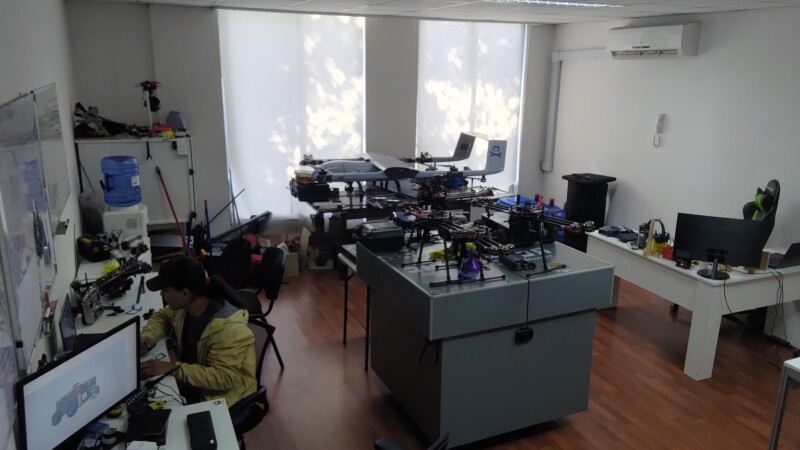

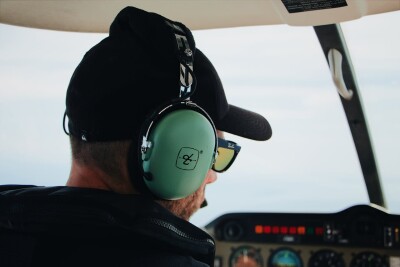
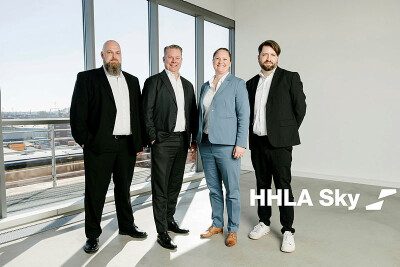









Comments